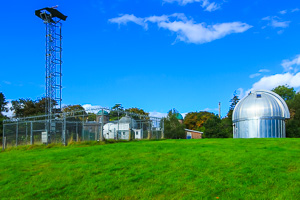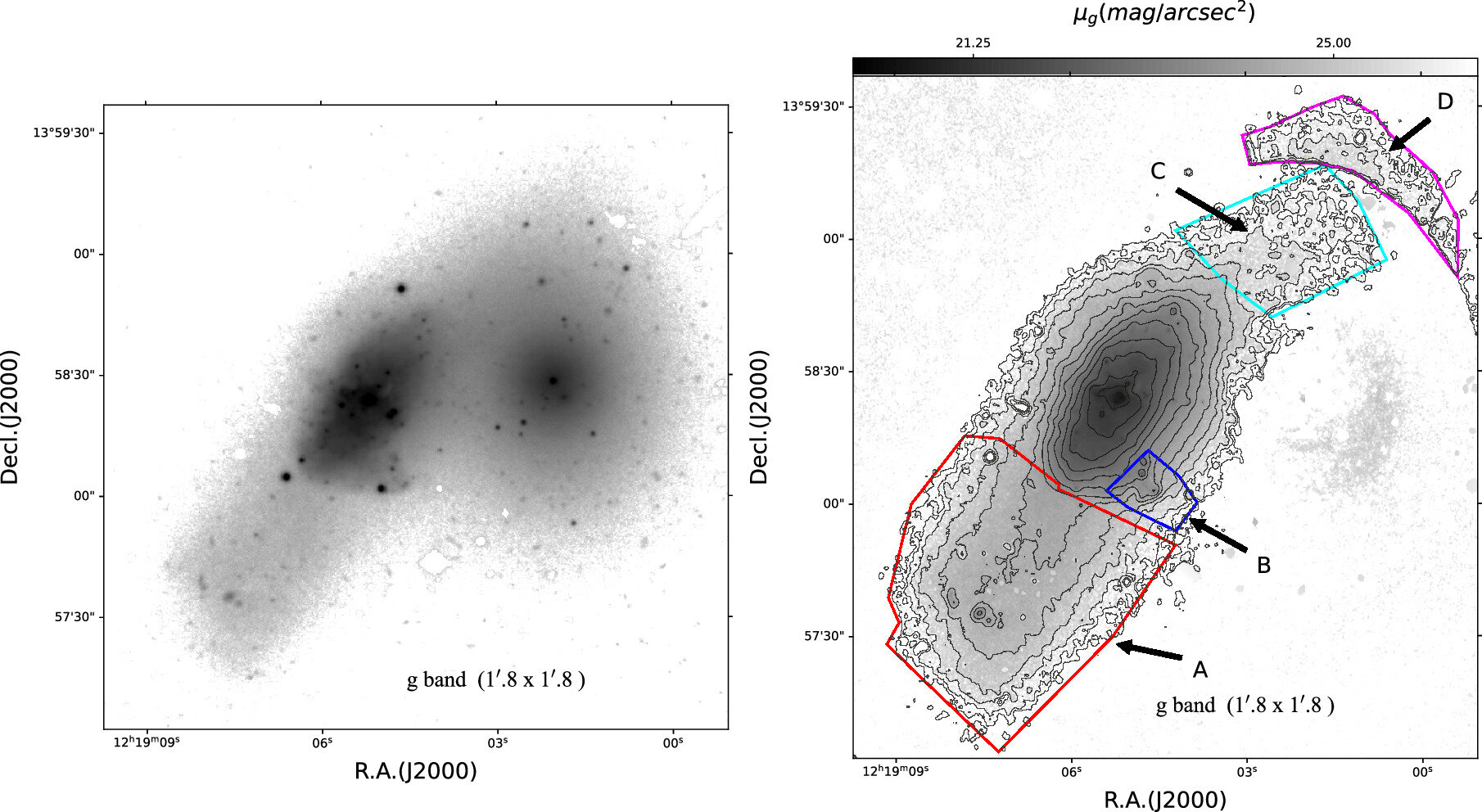FEBRUARY WARMER, SUNNIER AND SLIGHTLY WETTER THAN AVERAGE. WINTER 2023/2024 WARMER, SUNNIER AND SLIGHTLY DRIER THAN AVERAGE
Armagh Observatory reports that February 2024 was warmer than average, sunnier, and slightly wetter than average. Despite the month having lower than average atmospheric pressure there were no gales or named storms. The meteorological winter 2023/2024, that is, the three months December 2023, and January and February 2024, was much warmer, sunnier, and slightly drier than average.
The average temperature was a mild 7.30 degrees Celsius (45.1 Fahrenheit). This was 2.65 C warmer than the 225-year (1796–2020) long-term February average at Armagh (4.65 C) and 1.97 C warmer than the most recent (1991–2020) 30-year average (5.33 C). This extends to six years the observation that every February at Armagh since 2019 has been warmer than average. February 2024 was also the equal fifth warmest February on record at Armagh, the half-dozen warmest Februarys now being those of 1998 (8.3 C), 1945 (7.7 C), 1961 (7.5 C), 2023 (7.4 C), and 2019 and 2024 (both 7.3 C).
The standard 30-year February average temperatures at Armagh show a similar trend. The increase from the (1961–1990) 30-year February average (4.25 C) to the most recent (1991–2020) example (5.33 C) suggests that average February temperatures have increased over the last 30 years by approximately 0.36 C per decade.
The highest maximum air temperature, which is usually the warmest day, was 13.8 C on the afternoon of the 20th, followed by 13.7 C on both the 18th and 21st. The lowest maximum air temperature was 4.1 C conventionally attributed to the 8th although this maximum occurred shortly after the meteorological readings were taken at 09:00 GMT on the 7th. The second and third lowest maximum air temperatures were 5.5 C and 6.9 C on the afternoons of the 9th and 7th.
The average maximum temperature was 10.5 C, placing February 2024 equal fourth in the list of highest average maximum February temperatures at Armagh. Similarly, the average minimum temperature was 4.1 C, the highest such value for February at Armagh for 12 years, that is, since February 2012 (mean daily minimum 4.3 C). The highest minimum air temperature, loosely the warmest night, was a balmy 9.7 C attributed to both the 5th and the 18th, although in the latter case the minimum occurred shortly after the time of observations at 09:00 GMT on the 17th. Similarly, the third warmest night (9.1 C) conventionally attributed to the 17th occurred during the evening of the 16th. At Armagh, the lowest temperature achieved during any given meteorological day in February, that is, the 24-hour period beginning at 09:00 GMT, occurs after 09:00GMT and before midnight approximately 40% of the time, rather than, as would normally be expected, almost exclusively in the small hours after midnight and before 09:00 GMT.
The three coolest nights, or lowest minimum air temperatures, this month were 0.0 C on the 25th, followed by 0.1 C on the 26th and 0.4 C on the 7th. Compared with earlier years it has now become common for February at Armagh to have just one (as this year) or no days of air frost, that is, nights with minimum air temperatures less than or equal to zero degrees Celsius. There were, however, 19 nights with ground frost, which are nights with minimum grass temperatures less than or equal to zero Celsius. The three lowest of these were -6.1 C on the 26th, -4.9 C on the 7th, and -4.3 C on the 13th. Showers of sleet and snow were observed on the 8th, although with no snow lying, and partial rainbows were seen on the early afternoon of the 2nd and around midday on the 15th. Unlike previous months February 2024 was a relatively calm month with no named storms.
Total precipitation this month was 60.1 mm (2.37 inches) including 6 trace values, that is, 59.8 mm if trace values are ignored. This is approximately 8% more than the 183-year long-term (1838–2020) average February precipitation at Armagh (55.49 mm) and 2% more than the most recent (1991–2020) 30-year average (59.02 mm). There were 17 rain days this month, that is, days with total precipitation greater than or equal to 0.2 mm, the wettest of which was the 8th with 13.7 mm, followed by the 13th and 21st, both with 6.6 mm. With 72.5 hours of strong sunshine, February 2024 was sunnier than average at Armagh, recording nearly 11% more hours of strong sunshine than the 140-year (1881–2020) longterm average (65.4 hours) and approximately 2% more than the most recent (1991–2020) 30-year average (70.9 hours). This was the sunniest February at Armagh for four years, that is, since February 2020 (83.7 hours of strong sunshine). The sunniest day was the 24th with 8.5 hours of strong sunshine, followed by the 26th and 22nd with 7.4 and 7.3 hours respectively.
Taking the three months December 2023, and January and February 2024 together, the meteorological winter 2023/2024 at Armagh was warmer, sunnier, and slightly drier than average. The average winter temperature was 6.45 C. This was the warmest winter at Armagh for two years, that is, since the slightly warmer winter 2021/2022 (6.46 C), and the seventh warmest winter at Armagh since temperature records began at Armagh in December 1794. This winter was nearly 2.0 C warmer than the 225-year (1796/1797–2020/2021) long-term winter average at Armagh (4.48 C) and approximately 1.2 C warmer than the most recent(1991/1992–2020/2021) 30-year average (5.21 C).
Total winter sunshine was 171.3 hours, approximately 14% more than the 140-year longterm (1881/1882–2020/2021) winter average at Armagh (149.7 hours) and 6.1% more than the most recent (1991/1992–2020/2021) 30-year winter average (161.5 hours). This was the sunniest winter at Armagh for four years, that is, since winter 2019/2020 (177.5 hours of strong sunshine).
With a total of 201.6 mm of precipitation including 18 trace values, winter 2023/2024 at Armagh was slightly drier than average, approximately 97.4% of the 183-year (1838/1839–2020/2021) long-term average at Armagh (207.0 mm) and 93.5% of the most recent (1991/1992–2020/2021) 30-year average (215.7 mm).
The small difference between the 183-year long-term winter precipitation at Armagh and the most recent 30-year average is because winters at Armagh were slightly drier during the second half of the nineteenth century than they are now. There is no strong evidence that winters at Armagh are any wetter on average nowadays than they have been throughout the last approximately 120 years.
These data refer to observations at Armagh Observatory, which has been recording the weather at Armagh since 1795FOR FURTHER INFORMATION PLEASE CONTACT: Mark Bailey at theArmagh Observatory, College Hill, Armagh, BT61 9DG. Tel.: 028-3752-2928; mark.bailey@armagh.ac.uk; URL: http://climate.arm.ac.uk/.
February 2024 Weather in Armagh – Astronotes




